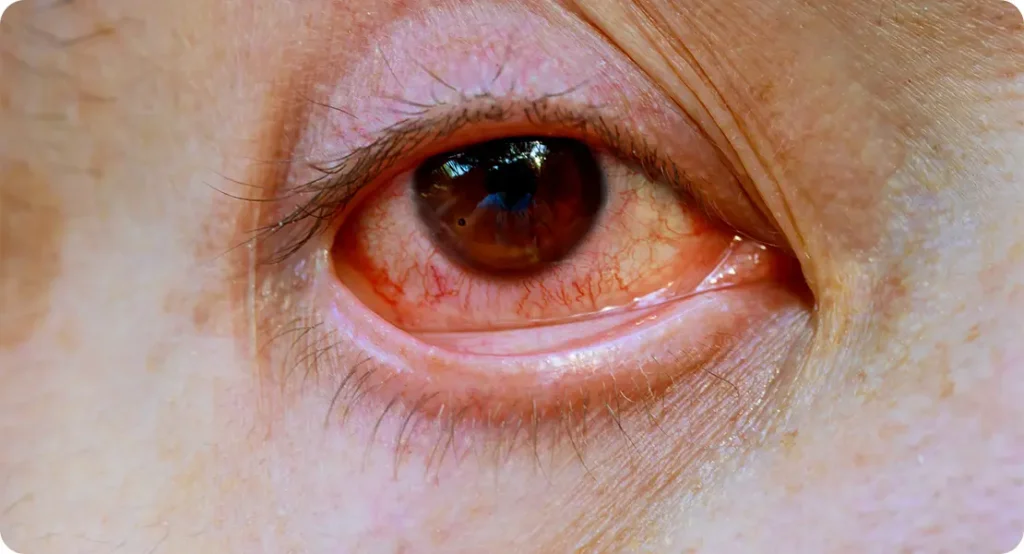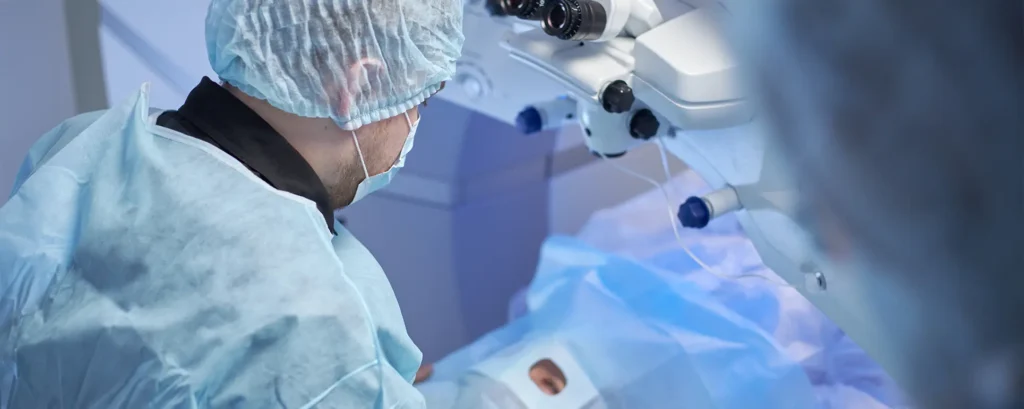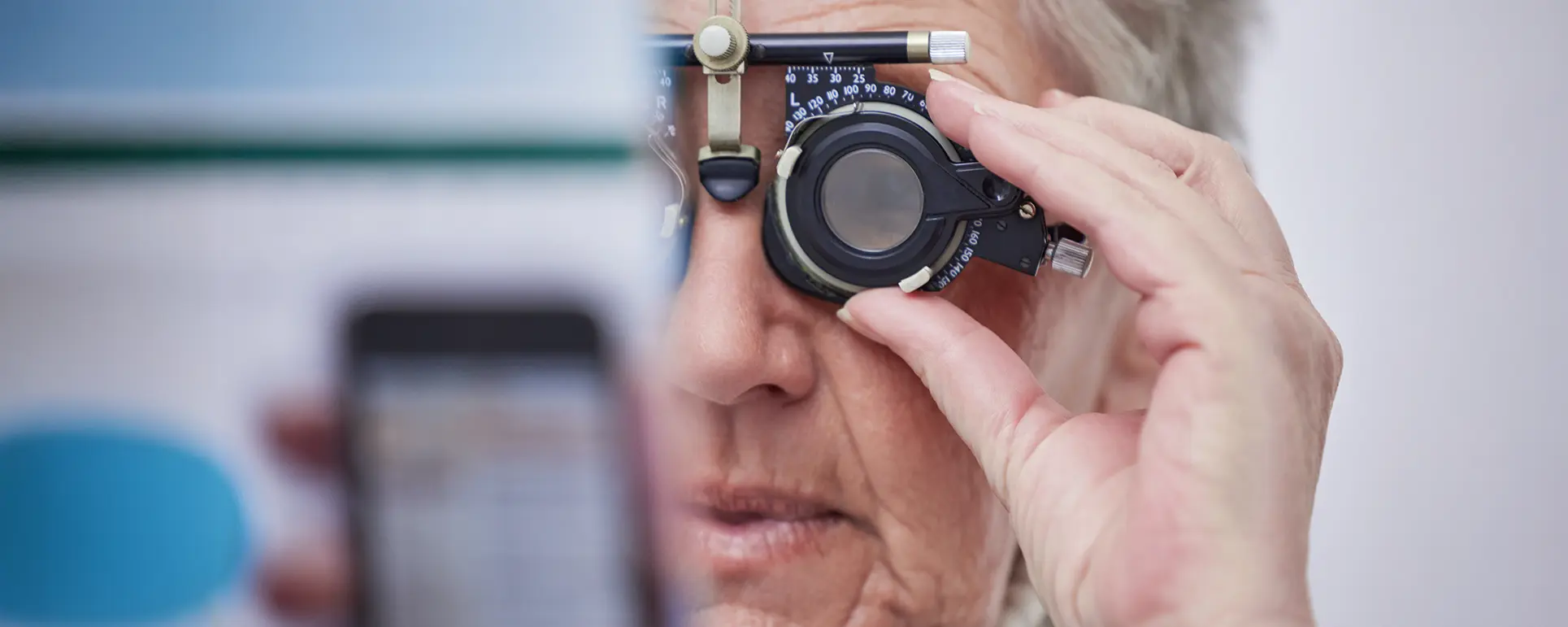If you’re living with an autoimmune skin condition and facing cataract surgery, it’s completely normal to wonder whether your condition will affect your eyes, your healing, or your surgical results. Autoimmune diseases like psoriasis, lupus, and pemphigoid don’t just cause visible skin symptoms they often affect the delicate tissues around your eyes as well. Because of this, cataract surgery in these patients requires careful planning, coordination, and specialist attention.
What many people don’t realise is that autoimmune activity can influence everything from dryness and inflammation to wound healing and postoperative comfort. Cataract surgery is incredibly safe and effective, but when autoimmune skin disease is part of your medical history, the approach needs to be more personalised.
In this guide, I want to walk you through exactly how autoimmune skin conditions can affect the eye area, what special precautions are recommended, and how dermatological coordination can significantly improve your recovery. If you’re preparing for cataract surgery, I want you to feel confident, informed, and comfortable with every stage of your journey.
How Autoimmune Skin Diseases Affect the Eye Area
Autoimmune skin conditions often extend beyond the surface of the skin. Many of them affect eyelids, lashes, tear glands, and even the ocular surface.
Here are the most common ways these conditions can influence cataract surgery planning and recovery.
1. Periocular Skin Fragility
Conditions like pemphigoid, lupus, and severe eczema make the skin around your eyes more fragile.
You may experience:
- Thinning of the eyelid skin
- Increased sensitivity
- Tendency to develop irritation
- Higher risk of inflammation
- Delayed healing
When surgery involves the eye area, this fragility matters because even gentle manipulation during the procedure can cause discomfort or post-operative issues.
2. Reduced Tear Production and Dry Eyes

Many autoimmune conditions disrupt tear glands or the tear-film layer.
Conditions commonly linked to dryness include:
- Lupus
- Sjögren’s syndrome
- Psoriasis
- Atopic dermatitis
Dryness can worsen after cataract surgery, so preparation is crucial.
Symptoms include:
- Burning
- Stinging
- Blurry vision
- Light sensitivity
- Feeling of grit or sand
If left unmanaged, dryness can slow healing and affect visual clarity.
3. Eyelid Inflammation and Blepharitis
Autoimmune activity often causes chronic eyelid inflammation.
This leads to:
- Clogged oil glands
- Flaky skin
- Redness
- Swelling
- Increased bacteria on the eyelid margins
Blepharitis is one of the main reasons why some patients have discomfort after cataract surgery. When treated beforehand, surgical outcomes significantly improve.
4. Immune Overactivity Affecting Healing
Your immune system plays a big role in how quickly and comfortably you recover after surgery. Autoimmune conditions often cause heightened immune sensitivity.
This may lead to:
- Increased inflammation
- Delayed wound healing
- Greater dryness
- Higher risk of postoperative flare-ups
Managing your autoimmune disease before cataract surgery is essential for reducing these challenges.
5. Increased Light Sensitivity
Patients with autoimmune skin diseases often experience photophobia due to dryness, inflammation, or ocular surface disruption.
After cataract surgery, the new clear lens can make your eyes even more sensitive, which is why pre-surgical preparation is so important.
Autoimmune Skin Diseases Most Likely to Affect Cataract Surgery

Here are the conditions that require the closest coordination between your dermatologist and cataract surgeon.
1. Psoriasis
Psoriasis may affect eyelids, eyebrows and the periorbital area. When it affects the eyes, it can lead to blepharitis, dry eyes, and irritation.
You may notice:
- Red, flaky eyelid margins
- Patchy skin on the eyelids
- Dryness
- Sensitivity
- Light discomfort
Psoriasis flares can worsen after surgery if not well controlled beforehand.
2. Lupus
Lupus affects the skin and immune system but also has direct eye involvement.
Common eye-related symptoms include:
- Dry eye
- Photosensitivity
- Eyelid inflammation
- Skin discoloration
Patients with lupus often need enhanced lubrication and careful postoperative monitoring.
3. Ocular Cicatricial Pemphigoid (OCP)
Pemphigoid is one of the most important autoimmune skin diseases to consider before cataract surgery.
It can cause:
- Scarring on the eyelids
- Conjunctival irritation
- Severe dryness
- Abnormal eyelash growth
- Eyelid malposition
Because OCP can lead to long-term scarring, surgery must be timed carefully and performed with tissue-sparing techniques.
4. Atopic Dermatitis and Eczema
These conditions cause itchy, inflamed eyelids and can trigger excessive rubbing one of the biggest risk factors for ocular problems.
You may experience:
- Eyelid swelling
- Redness
- Dryness
- Increased skin sensitivity
Prevention (moisturisers, antihistamines and steroid creams) is essential.
5. Rosacea
Nearly half of rosacea patients develop ocular symptoms.
These may include:
- Burning
- Redness
- Swelling
- Gritty sensation
- Eyelid margin inflammation
Rosacea flares can worsen dryness and postoperative discomfort.
Why Dermatological Coordination Is Essential
Cataract surgery is usually straightforward, but autoimmune skin conditions introduce unique risks. That’s why coordinated care between your cataract surgeon and dermatologist is one of the most important steps you can take.
Here’s why it matters.
1. Your Skin Condition Must Be Stable Before Surgery
You’ll get the best results when your autoimmune disease is under control.
A stable skin condition means:
- Fewer flare-ups
- Reduced inflammation
- Better healing
- Less irritation
- More comfortable recovery
If your condition is actively flaring, your surgeon may recommend delaying surgery.
2. Special Eye Drops May Be Needed Before Surgery
Depending on your condition, you may need:
- Anti-inflammatory eye drops
- Immune-modulating drops
- Intense lubrication
- Lid hygiene treatments
- Omega-3 supplements
- Antibiotic lid preparations
Preparing the ocular surface improves both comfort and visual results.
3. Eyelid Conditions Must Be Treated Ahead of Time
Blepharitis, dermatitis and dry eyes can worsen your recovery if left untreated.
Your care plan may include:
- Warm compresses
- Lid cleaning
- Antibacterial foam cleansers
- Preservative-free lubricants
- Anti-inflammatory ointments
Treating these issues before surgery reduces irritation and prevents infection.
4. Managing Autoimmune Flares Around Surgery
Autoimmune diseases sometimes flare due to stress or healing responses. Your dermatologist may adjust your topical or oral medications to keep your condition stable before and after cataract surgery.
This may include:
- Adjusting immunosuppressants
- Introducing protective creams around the eyelids
- Temporarily modifying steroid use
- Prescribing anti-inflammatory support
Good timing is everything.
Preparing for Cataract Surgery When You Have Autoimmune Skin Disease
Here’s how to prepare for a smooth, comfortable and safe procedure.
1. Review All Medications With Your Surgical Team
Autoimmune patients often take:
- Steroids
- Methotrexate
- Biologics
- Immunosuppressants
- Topical treatments
- Antimalarial drugs
All of these can influence healing or inflammation, so complete transparency is essential.
2. Strengthen the Ocular Surface Before Surgery
A healthy ocular surface leads to better visual outcomes.
You may need:
- Preservative-free tear drops
- Hot compress therapy
- Omega-3 supplements
- Anti-inflammatory drops
- Eyelid cleansers
- Punctal plugs (in severe dryness)
Improving lubrication before surgery helps you see more clearly afterward.
3. Manage Skin Flares Early
If you have eyelid eczema, psoriasis or dermatitis, treating flare-ups ahead of time helps protect the eye during recovery.
Effective strategies include:
- Hydrating the skin
- Using prescribed topical treatments
- Avoiding triggers
- Keeping the eyelids clean
- Minimising irritation
You want your skin to be calm when you go in for surgery.
4. Discuss Anaesthesia and Skin Sensitivity
If you have sensitive periocular skin, sedation and topical anaesthesia must be selected carefully.
Your surgeon needs to know:
- If you react to adhesives
- If you’ve ever had dermatitis from eye drops
- Whether your skin tears easily
This ensures you get the most comfortable, safe approach.
During Cataract Surgery: What to Expect
Cataract surgery itself is gentle and brief, usually taking around 10–15 minutes per eye. But your autoimmune skin condition may influence a few choices during surgery.
1. Gentler Techniques Are Used
Your surgeon may:
- Use minimal manipulation
- Limit pressure on the eyelids
- Avoid adhesive drapes if needed
- Choose preservative-free anaesthetic drops
The goal is to protect your skin and ocular surface.
2. Extra Lubrication Is Applied
To avoid dryness, protective gel or lubrication may be used during surgery. This keeps your eye comfortable and reduces postoperative irritation.
3. Careful Management of the Eyelids
Your surgeon will avoid:
- Over-stretching the eyelid
- Excess rubbing
- Contact with inflamed areas
This reduces the risk of flares and irritation.
After Cataract Surgery: Healing in Autoimmune Patients
Postoperative care matters just as much as the procedure itself.
Here’s what you can expect.
1. Enhanced Lubrication
You’ll likely need:
- Preservative-free artificial tears
- Hydrating eye gel
- Lubricating ointment at night
Autoimmune patients often require more intense dryness care.
2. Tailored Anti-Inflammatory Drops
Standard care includes steroid and antibiotic drops, but your surgeon may prescribe additional:
- Anti-inflammatory drops
- Immune-modulating drops
- Soothing lubricants
These help keep inflammation under control.
3. Close Monitoring for Flares
You may be scheduled for more frequent check-ups to ensure your skin and ocular surface remain stable.
Your doctor will check for:
- Eyelid irritation
- Corneal dryness
- Inflammation
- Infection
- Slow healing
Prompt treatment prevents complications.
4. Gentle Eyelid Care
Avoid rubbing, pulling or scratching the eyelids, especially if you have eczema, psoriasis or dermatitis. Your skin needs time to heal without irritation.
5. Managing Sun Sensitivity
Autoimmune patients often experience increased light sensitivity after surgery.
Wearing:
- UV-protective sunglasses
- Wide-brim hats
- Anti-glare lenses
can help ease discomfort.
Visual Outcomes in Autoimmune Skin Disease Patients
Many patients with autoimmune conditions achieve excellent visual results after cataract surgery. However, the quality of your outcome depends on managing inflammation and dryness effectively.
You can expect:
- Clearer vision
- Brighter colours
- Improved contrast
- Better night vision
- Reduced glare
As long as your condition is managed well, your vision can improve significantly.
FAQs:
1. Can autoimmune skin conditions make cataract surgery riskier?
Autoimmune skin conditions can increase certain risks, but cataract surgery is still considered very safe when properly planned. Conditions like psoriasis, lupus and pemphigoid can affect the eyelids, tear film and ocular surface, which may make your eyes more sensitive during and after the procedure. With the right preparation, stability of your autoimmune condition and close monitoring from both your dermatologist and cataract surgeon, the risks can be effectively managed, allowing you to recover comfortably and achieve good visual results.
2. Will my autoimmune condition flare up after cataract surgery?
Some patients do experience temporary flares because surgery places mild stress on the body. However, this is not guaranteed. When your dermatologist adjusts your medications in advance and the surgical team uses gentle techniques, the chance of a flare becomes much smaller. Most flares, if they happen, are mild and settle quickly with treatment.
3. Can dry eyes caused by autoimmune disease worsen after surgery?
Yes, they can temporarily worsen because cataract surgery affects the tear film. Autoimmune conditions such as lupus, Sjögren’s syndrome, psoriasis and eczema often reduce tear production even before surgery, which makes dryness more noticeable afterward. Fortunately, with intensive use of preservative-free lubricants, hydrating gels, anti-inflammatory drops and sometimes punctal plugs, dryness is manageable and usually improves with time.
4. Should I delay cataract surgery if my skin disease is flaring?
It is generally better to wait until your autoimmune skin condition is stable. Surgery during an active flare can increase inflammation, slow healing and make postoperative discomfort more noticeable. Once your dermatologist stabilises your condition, your surgery tends to be more comfortable, predictable and safe.
5. Will the eye drops used after surgery irritate my skin?
Some patients with eczema, dermatitis or highly sensitive periocular skin may react to preservatives or certain ingredients in eye drops. Your surgeon will usually prescribe preservative-free options and choose formulations that minimise irritation. If you have ever reacted to eye drops, creams or adhesives in the past, you should tell your surgical team in advance so they can adjust your treatment plan.
6. Can cataract surgery worsen my psoriasis, eczema or rosacea around the eyes?
Cataract surgery itself does not worsen these conditions, but the stress of healing and temporary dryness may trigger mild irritation. When your skin is moisturised regularly, your eyelid margins are kept clean and your topical treatments are continued as advised by your dermatologist, most patients do not experience significant worsening. If a flare occurs, it is usually easy to calm with prescribed creams and careful aftercare.
7. What if I am taking immunosuppressants or biologics?
Many patients with autoimmune skin diseases take immunosuppressants like methotrexate, steroids or biologic injections. These medications do not automatically prevent you from having cataract surgery, but your dermatologist and surgeon may adjust timing or dosage to support healing. Most patients continue their regular therapy and still recover very well after the procedure.
8. Will cataract surgery be more painful for me because of my condition?
Most patients feel little to no pain during surgery, regardless of autoimmune status. The local anaesthesia and gentle surgical techniques ensure comfort. However, your eyes may feel slightly more irritated afterward if you have pre-existing dryness or eyelid inflammation. This discomfort is temporary and usually improves with lubrication and anti-inflammatory medications.
9. Can I expect good vision results even with an autoimmune skin disease?
Yes, many patients achieve excellent visual clarity once inflammation, dryness and eyelid issues are well managed. Conditions like psoriasis, lupus or pemphigoid do not permanently damage the inside of the eye unless they are extremely advanced. As long as the ocular surface is stable and your skin condition is under control, your visual results can be just as good as those of patients without autoimmune disease.
10. Should my dermatologist stay involved after the surgery?
Absolutely. Your dermatologist plays a key role in maintaining skin stability, managing flares and adjusting medications as needed during the healing phase. Continued coordination between your dermatologist and cataract surgeon ensures that both your skin and your eyes recover smoothly, which leads to better comfort and more predictable vision outcomes.
Final Thoughts: Coordinated Care is Key for Safe, Effective Cataract Surgery
Cataract surgery is highly successful for most patients, but autoimmune skin conditions add unique considerations that require careful planning. When your dermatologist and cataract surgeon work together, your ocular surface, eyelids, and overall skin health are optimised before surgery, which reduces inflammation, supports healing, and minimises postoperative discomfort. Managing dryness, inflammation, and potential flares ensures your eyes remain comfortable and your vision outcomes are excellent.
By stabilising your autoimmune condition, tailoring eye drops and lubrication, and using gentle surgical techniques, you give yourself the best chance of a smooth recovery and clear vision. Coordinated care also allows your surgical team to respond quickly to any flares or irritation, keeping both your skin and eyes safe. If you want to improve your vision or need tailored advice, our expert team at the London Cataract Centre is ready to support you.
References:
1. Geerling, G. & Dart, J. K. (2000) ‘Management and outcome of cataract surgery in ocular cicatricial pemphigoid’, Graefe’s Archive for Clinical and Experimental Ophthalmology, 238(2), pp. 112–118. https://pubmed.ncbi.nlm.nih.gov/10766278/
2. Artornsombudh, P., Pistilli, M., Newcomb, C. W., Foster, C. S., Jabs, D. A. & Thorne, J. E. (2025) ‘Incidence and outcomes of cataract in eyes with ocular cicatricial pemphigoid’, Ocular Immunology and Inflammation, 33(5), pp. 791–799. https://pubmed.ncbi.nlm.nih.gov/39908486/
3. Ruggiero, A., Ranchet, M., D’Amico, A., et al. (2021) ‘Ocular Manifestations in Psoriasis Screening (OcMaPS): A Useful Tool to Reveal Misdiagnosed Ocular Involvement in Psoriasis’, Journal of Clinical Medicine, 10(5), 1031. https://www.mdpi.com/2077-0383/10/5/1031
4. Liu, Y., Bao, L., Sodha, D., Li, J., Mansini, A., Djalilian, A. R., … & Amber, K. T. (2024) ‘Ocular Predominant Mucous Membrane Pemphigoid Demonstrates a Distinct Autoantibody Profile from Other Autoimmune Blistering Diseases’, Antibodies, 13(4), 91. https://www.mdpi.com/2073-4468/13/4/91
5. Palejwala, N. V., Walia, H. S. & Yeh, S. (2012) ‘Ocular Manifestations of Systemic Lupus Erythematosus: A Review of the Literature’, Autoimmune Diseases, 2012, Article ID 290898 https://pmc.ncbi.nlm.nih.gov/articles/PMC3395333/

